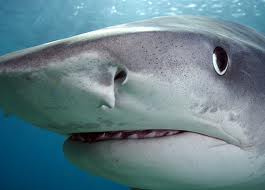THE Mamanuca Environment Society (MES) is committed to improving the monitoring of the region’s shark population.
MES media liaison officer Emosi Lasaqa said the group joined the Great Fiji Shark Count last year to establish its shark, sting ray and turtle database.
“The society is now setting up a network of contacts across the region and strongly encourages all users of the Mamanuca waters to get behind the project and report all sightings,” said Mr Lasaqa.
“Sharks in our coastal waters are apex predators, meaning they rank at the top of the marine food chain.
“They rely on the whole food web to survive. Any small break in the food chain probably will not affect shark and ray populations but many breakdowns in the food chain will certainly affect them.
“Sharks are large, easy to track and their population makes an excellent indicator of the overall marine environmental health.”
He said the society would work closely with its sponsors, member resorts and coalition allies to get involved in the Great Fiji Shark Count.
The shark count is held across Fiji throughout the months of April and November every year.
Meanwhile, the better monitoring of shark vulnerability was a key issue addressed at the Western Central Pacific Tuna Fisheries Commission (WCPFC) Scientific Committee meeting last year.
Stock assessments of the status of silky shark and oceanic white-tip shark within the Western and Central Pacific Ocean (WCPO) were presented at that meeting while an assessment for the blue shark was planned for presentation to the scientific committee meeting in August this year.
Shark species and their depleting status in the region has become an area of priority analysis for Fiji and other Pacific countries.
(SOURCE: Fiji Times)


